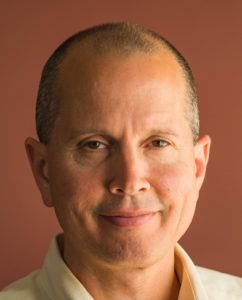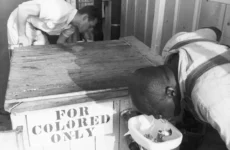I attended a presentation recently of the Empire State Poverty Reduction Initiative (ESPRI), a state-funded program announced last year with the noble intention of reducing poverty by helping people enter the workforce and gaining important life skills.
We’ve been waging a War on Poverty for half a century now, since LBJ declared war while at the same time waging another war in a far-off jungle. The results of our War on Poverty are questionable, at best.
New York’s former United States Senator Daniel Patrick Moynihan warned us that we were contributing to the breakdown of the family and in a sense institutionalizing poverty, but 50 years later the war rages on.
Here in Niagara Falls, poverty is a massive problem that is a drain on our city’s and county’s coffers, not to mention the large amounts of state and federal monies sent here to alleviate poverty. But look around.
During the ESPRI presentation, our mayor correctly stated that the best route out of poverty was a job. Precisely. So let’s follow that line of reasoning and look at another approach to fighting poverty.
What if the tremendous resources we pour into fighting poverty were instead deployed to enhance economic development. What if the drain of tax dollars that transfer wealth from the most productive sectors of the economy and channel them to unproductive sectors were instead allowed to remain in the productive sectors, thereby creating more economic activity and more jobs?
Yes, a job is the best route out of poverty. But it’s become too easy to live in this country without a job. We’ve essentially taken away the all-important incentives to work and be productive and replaced them with a safety net that has become a hammock.
We’ve so institutionalized poverty that you can live at the federal poverty line and still have a smart phone, a flat screen TV, air conditioning, health insurance via Medicaid and plenty of food, all without a job. So where is the incentive to go through the process of learning new skills, seeking employment, and then showing up every day to a job?
Here’s an idea:
What if the federal and state government officials who administer programs related to subsidized housing, food stamps, Medicaid and other public assistance programs carved out an exemption for Niagara Falls, we’ll call it the Niagara Falls Poverty Reduction Enterprise Zone (PREZ.)
In this zone, federal and state handouts are available, but with strings attached, strings determined at the local level, not in Washington or Albany. Things like work, living responsibly and drug-free, community involvement and other worthy attributes could be tied to the hand-outs.
At the same time, we vigorously push economic development and job creation, reducing tax and regulatory barriers to doing business in Niagara Falls. Perhaps prohibitively high state business taxes are reduced in the PREZ, offset by reduced state handouts.
So at the very time investors and developers and entrepreneurs are coming here and creating jobs, we have a bunch of people who are freed from the yoke of federal and state largesse and entering the workforce.
Many of these good folks may lack the skills needed to enter the workforce, but many employers are willing to train and develop people and give them the skills they need. The good thing is that they would now legitimately need these skills. Let’s face it, under the current system they really don’t need the skills because they can live without working.
But this is all a pipe dream. There will be no federal or state carve-out for Niagara Falls or any other community to try a new approach to fighting poverty. We’ll continue to drain massive tax dollars from the productive sectors in our economy and pour them into programs that haven’t worked for decades.
While I’m skeptical of this new ESPRI initiative, I applaud the well-intended people and groups trying their best to make a difference in their community, and I hope they can make a difference.
The final slide of the ESPRI Power Point presentation asked a number of questions. The first: Will this program work?
What do you think?
BY: Chris Voccio, Niagara Falls City Councilman





















